| | In this edition: South Africa-US tensions grow over G20, Kenya eyes new power deals, and Africa’s Ch͏ ͏ ͏ ͏ ͏ ͏ |
| |   Johannesburg Johannesburg |   Lagos Lagos |   Nairobi Nairobi |
 | Africa | 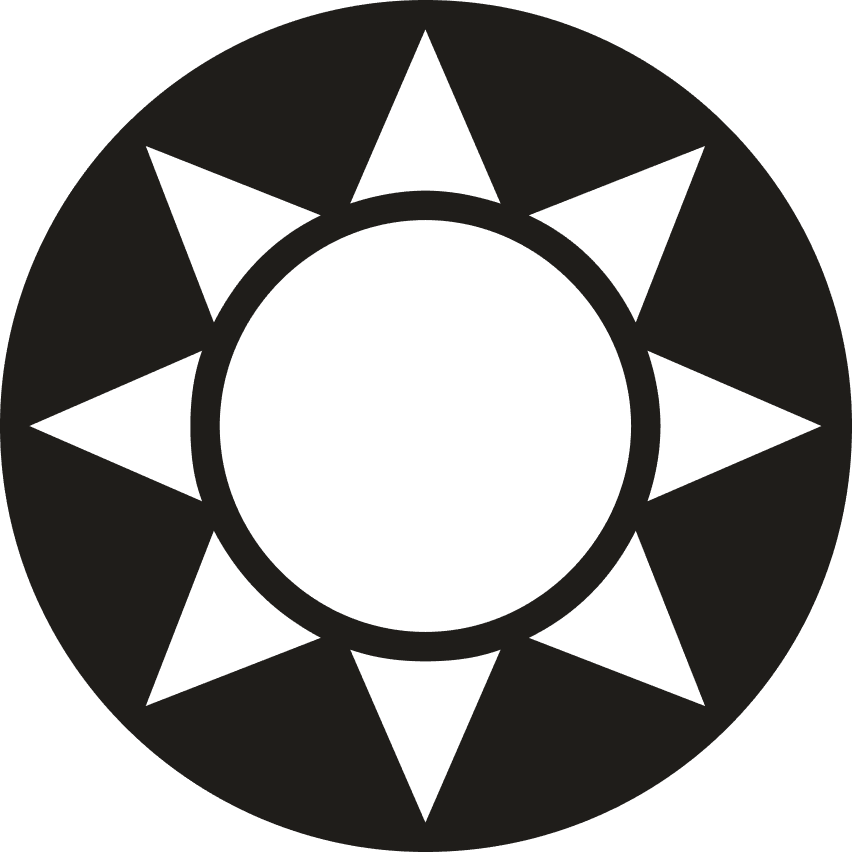 |
| |
|
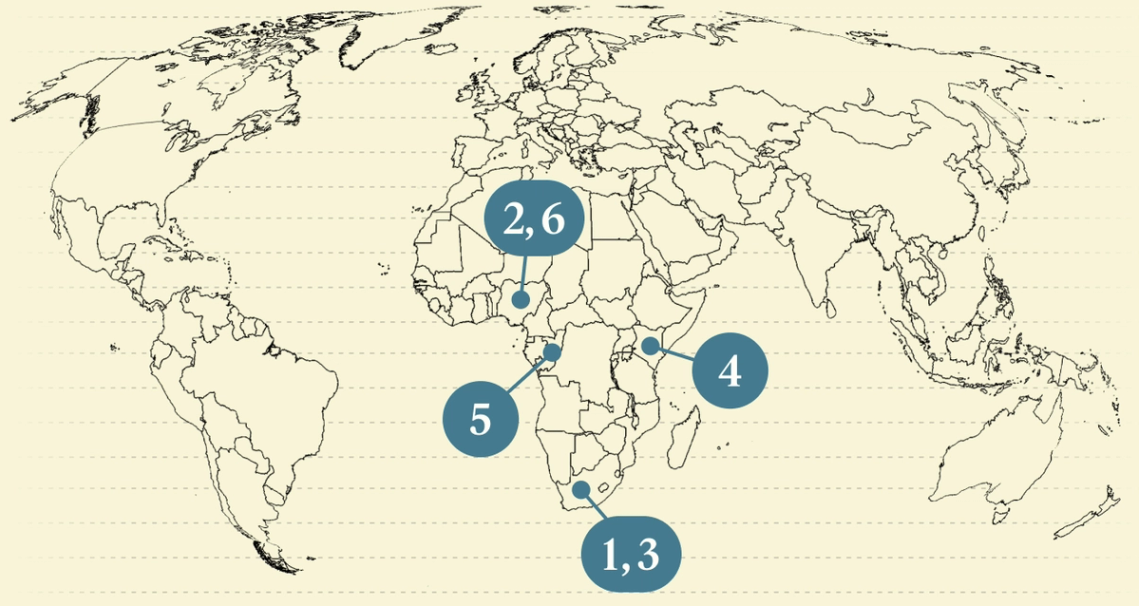 - G20 tensions grow
- US measures on Nigeria
- South Africa’s rate cut
- Kenya eyes new power deals
- Africa’s perception of China
- Separatist leader jailed
 Weekend Reads and a new arts festival set to debut in Senegal. |
|
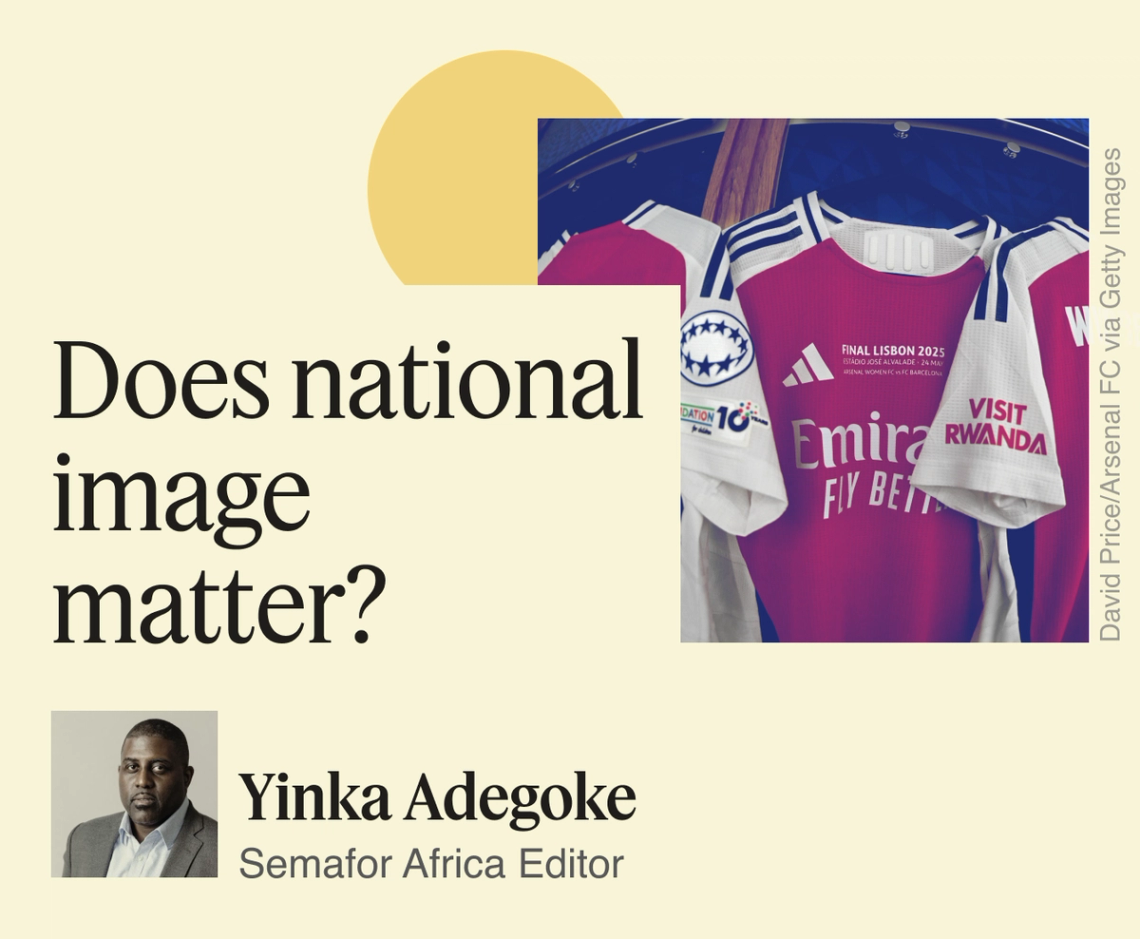 I recently spoke with a US-based African diplomat who was concerned about negative changes to their country’s image in Washington. It was an unusual conversation because as journalists, we are often too busy uncovering or reacting to the news to consider how countries manage their image. Few African countries put in the resources to manage their international image beyond dreamy tourism TV ad campaigns in Western markets. One country that has stood out for adopting a more ambitious strategy is Rwanda, drawing the world’s eyes through its “Visit Rwanda” sponsorship deal with some of the biggest international football clubs: England’s Arsenal, France’s Paris St. Germain, and Germany’s Bayern Munich. It was one of the most successful rebrandings of an African country in recent times — well, until it wasn’t. This week Arsenal announced it would not renew its eight-year shirt sleeve partnership with Rwanda when it expires in June. The move was somewhat anticipated as Arsenal fans became increasingly vocal in their calls to end the deal over Kigali’s reported role in the conflict devastating eastern DR Congo. Bayern fans also pressured their club to ditch its sponsorship deal in August for a football development partnership in Rwanda. National image matters to African citizens as much as it does governments. Throughout this past week in Johannesburg, which hosts the continent’s first-ever G20 summit this weekend, South Africans expressed a mix of concern and frustration about how their country was being viewed in the US. President Donald Trump’s repeated false claims of “white genocide” and his boycott of the G20 itself must be fueling negative perceptions, they told me. For African states, “nation branding isn’t a luxury,” said Thebe Ikalafeng, founder of Johannesburg-based Brand Africa, because of how important it is to economic strategy: “More than ever, managing perception is an imperative and a geopolitical asset.” |
|
US denies G20 boycott rethink |
 South African President Cyril Ramaphosa. Yves Herman/Reuters. South African President Cyril Ramaphosa. Yves Herman/Reuters.Tensions intensified between South Africa and the US after they exchanged conflicting remarks about whether American officials would attend the upcoming G20 summit in Johannesburg. The dispute concerns US President Donald Trump’s boycott of the meeting over disputed allegations that Pretoria discriminates against its white population. South African President Cyril Ramaphosa on Thursday said Washington was rethinking the boycott, only for the White House to dismiss the claim as “fake news.” A White House official said an envoy would attend a ceremony for a G20 presidency handover, but Washington would not participate in talks. Analysts had viewed the event as part of a trend in which the continent is “increasingly exerting more influence in global governance.” But the dispute threatens to divert attention from the talks, which Ramaphosa wants to focus on issues such as global inequality and debt restructuring. The lack of high-level buy-in means any progress may be limited: Along with Trump, the leaders of Argentina, China, Indonesia, and Mexico are also skipping the meeting. — Alexis Akwagyiram |
|
US mulls Nigeria sanctions |
 Nigeria’s President Bola Tinubu. Adriano Machado/Reuters. Nigeria’s President Bola Tinubu. Adriano Machado/Reuters.The US is devising a plan that may include sanctions to compel Nigeria to protect Christian communities, a senior official said. During a House of Representatives Foreign Affairs Committee hearing on Thursday, Jonathan Pratt, the State Department’s senior official for African affairs, said Nigeria has “not done enough” to combat deadly violence targeting Christians in the country’s central region. The issue led the Trump administration to redesignate Nigeria as a “Country of Particular Concern” in October. Abuja has shown a welcome “willingness to cooperate” since the CPC designation, Pratt said, and an official delegation led by Nigeria’s national security adviser met US Congressman Riley Moore — a chief proponent of claims of genocide against Nigerian Christians — this week. But the Trump administration is nevertheless working on a plan that could include sanctions “as well as possible Department of War engagement on counter-terrrorism and other efforts to protect religious communities,” he said. |
|
South Africa’s interest rate cut |
 South Africa’s new benchmark interest rate after the central bank cut it by 25 basis points to its lowest level in more than two years. The National Treasury’s decision to scrap plans to raise value-added tax, as well as a stronger exchange-rate assumption, and lower oil prices all helped to revise down inflation forecasts, paving the way for a rate cut. The central bank’s decision is the first since South Africa’s inflation target was lowered to 3% this month — the first adjustment in 25 years. Central Bank Governor Lesetja Kganyago has long advocated for a lower target, which was previously set between 3% and 6%, arguing that it did not align with South Africa’s international peers, and that the new goal would reduce borrowing costs. “Now that inflation has slowed, we have a chance to lock in inflation at a lower cost,” Kganyago said on Thursday. The rand strengthened as much as 1% against the dollar on the result. |
|
Kenya looks for new energy operators |
| | 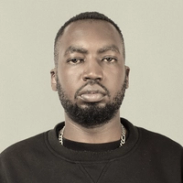 | Martin K.N Siele |
| |
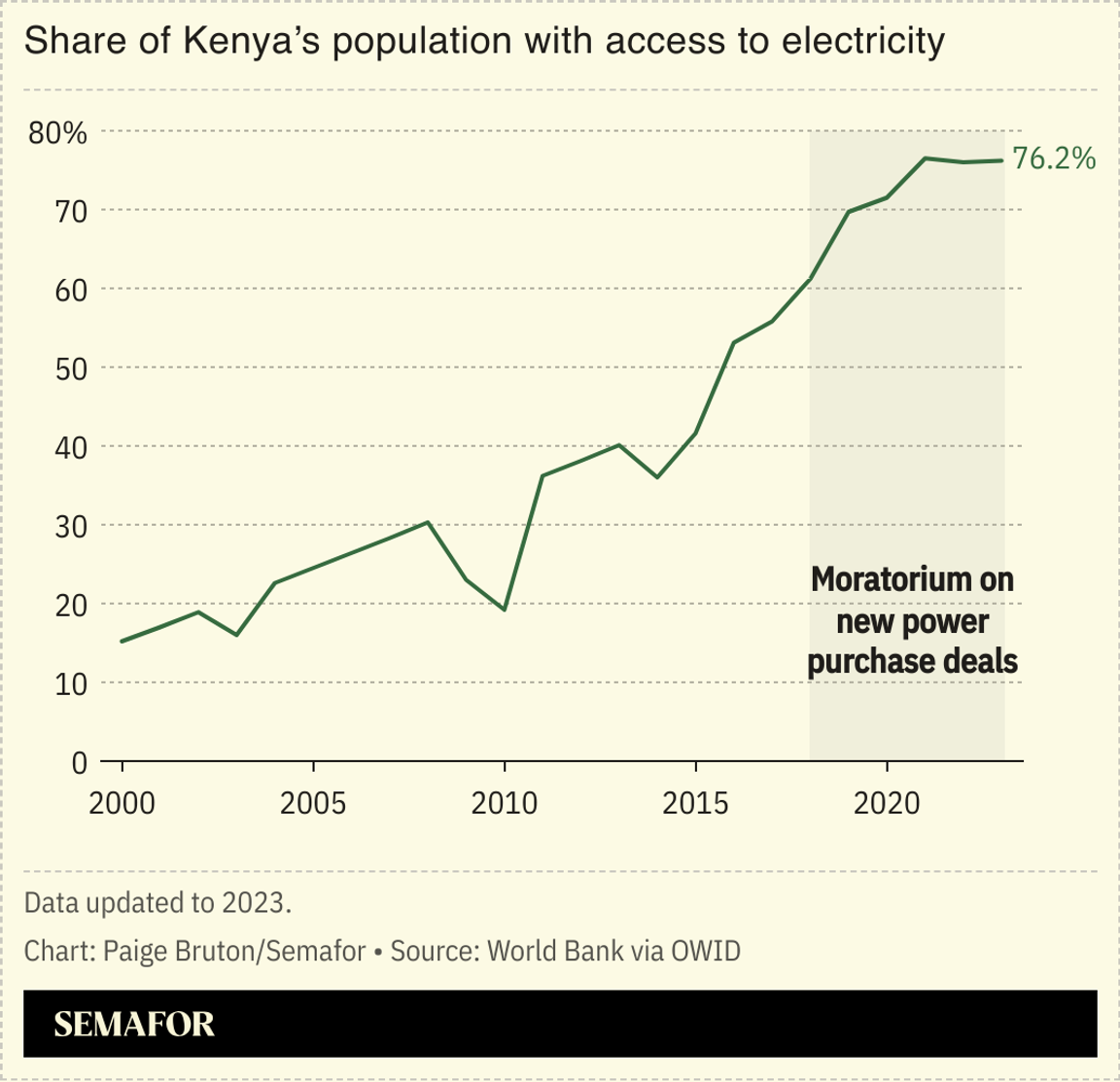 Kenya’s government is fast-tracking new energy deals to shore up electricity supplies as its inability to meet power demands threatens growth in East Africa’s biggest economy and undermines industrialization plans. Last week MPs voted to lift a seven-year moratorium on signing new power purchase agreements, and the energy ministry is holding talks with 65 producers offering a combined capacity of 1,112 MW — nearly half of the country’s total current capacity. The majority of the producers are hydropower developers, with solar and geothermal also in the mix. President William Ruto announced this month that Kenya had begun loadshedding — rationing power in certain areas during peak demand hours — because the country’s capacity was being outpaced by record demand for electricity. The president has said the country needs to more than double its capacity in order to drive industrial expansion and overall economic growth. The head of the Kenya Association of Manufacturers told Semafor that continued loadshedding “could shrink the economy by 10-20%,” adding: “That level of loss is unsustainable for both government and industry.” |
|
 As one of the world’s foremost financial hubs, Abu Dhabi is emerging at the crossroads of innovation, investment, and inclusion — linking markets across the Middle East, Africa, and Asia. Held at Abu Dhabi Finance Week, Semafor will showcase insights from the upcoming Global Findex 2025 report and the Global Digital Connectivity Tracker, translating global research into practical, locally grounded conversations. With Abu Dhabi prioritizing sustainable finance, digital transformation, and cross-border collaboration, the city provides an ideal stage to explore how technology and capital can work together to expand access, inclusion, and economic opportunity. Dec. 11 | Abu Dhabi | Request Invitation |
|
View: How Africa got stuck with China |
| |  | Andy Browne |
| |
 Thomas Mukoya/Reuters Thomas Mukoya/ReutersUS President Donald Trump’s boycott of this weekend’s G20 meeting in Johannesburg has been widely cast as a win for China, and for good reason, Semafor’s Andy Browne argued in a new column. The US appears to be turning its back on Africa just as Beijing surges its infrastructure and investment commitments to the continent after a long lull, Browne, a longtime China expert, wrote. Yet, China’s track record in Africa is decidedly mixed. Beijing’s mercantilist trade practices are a growing threat, as artificially cheap Chinese products — blocked from the US by Trump’s tariffs — inundate markets across the continent. “Beijing is moving closer to its goal of forging an alternative to the US-led global order — not because of any great enthusiasm among indebted countries of the Global South,” Browne wrote, “but by default.” |
|
Person of Interest: Nnamdi Kanu |
 Marco Longari/AFP via Getty Images Marco Longari/AFP via Getty ImagesNigerian separatist leader Nnamdi Kanu was convicted of terrorism by a court in Abuja and sentenced to life imprisonment. The ruling, which can be appealed, is the latest step in a lengthy legal process that has seen the government face off against one of the country’s most controversial figures. Kanu, 58, has over the past decade led a secessionist movement calling for parts of southeastern Nigeria to form a breakaway Biafra nation. The movement he forged seeks to tap into perceived feelings of marginalization by some in that part of the country, hearkening back to sentiments that fueled the Nigerian civil war nearly six decades ago. But his Indigenous People of Biafra organization was designated a terrorist group in 2017 by the Nigerian government for alleged acts of violence, and a judge this week said Kanu had “an evil intention to wreak havoc on the people and government of Nigeria,” and had masterminded an illegal years-long order that forbade residents in Nigeria’s southeast from working on Mondays. — Alexander Onukwue |
|
 - Tanzania’s democratic backsliding and swift descent into repression offers a stark warning for the rest of the continent, argues Kenneth Mohammed in The Guardian. President Samia Suluhu Hassan’s violent struggle to hold on to power after an election widely condemned as neither free nor fair “underscores how fragile democratic gains remain across the continent,” Mohammed writes.
- An Al-Qaida-affiliated group launched its first attack on Nigerian soil last month, marking a major escalation for the 6,000-member militant organization that has embedded itself across West Africa’s Sahel region. Nigeria must strengthen border security and establish tactical early warning systems to improve its counterterrorism response, writes Folahanmi Aina, a lecturer in the political economy of violence at SOAS university, in The Conversation.
|
|
|